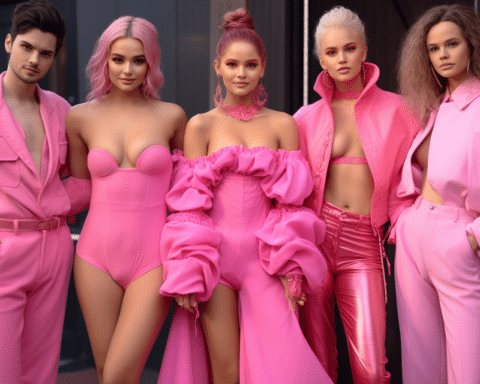Brands have long relied on partnerships with celebrity influencers as a crucial aspect of their marketing efforts. The surge of influencer culture brought forward thousands of people looking to capitalize on their online presence.
However, recent trends indicate a growing disillusionment with traditional influencer marketing, with studies showing that only a mere 3% of consumers are swayed to purchase products based on recommendations from influencers.
So what’s behind this shift in consumer behaviour? Why are people losing faith in influencers?
The answer lies in the way consumers now interact with brands. The days of passive audiences are gone, and customers now seek meaningful and authentic engagement, forming their own communities based on shared interests and values, commonly referred to as “tribes.”
Let’s delve into the reasons why influencer marketing is losing its influence.
Why Influencers are Losing Their Appeal
Social media platforms like Instagram, Twitter, and Facebook have become central to our lives, offering a space for self-expression, connection, and community building.
However, these platforms have also become saturated with sponsored posts and advertising, leading social media users to become more critical and discerning regarding influencer posts’ authenticity.
As a result, they are less likely to be swayed by the endorsements of influencers and brands they perceive as inauthentic.
Key Factors Contributing to the Decline of Influencer Marketing
- Growing Demand for Authenticity
One of the main drivers behind the move away from influencer marketing is the increased demand for authentic and genuine engagement. Consumers need to catch up with generic, staged posts promoting products such as teeth whitening kits, boutique clothing, or appetite-suppressing lollipops.
They are now seeking real, unstaged content that resonates with them on a personal level. This is particularly true for millennials and Generation Z, who value authenticity and realness in the content they consume.
The recent interest in stories like that of Instagram influencer Caroline Calloway and her ghostwriter Natalie Beach highlights the public’s desire to see the real person behind the online persona.
- Prevalence of Fake Influencers and Inflated Engagement
Another factor contributing to the decline of influencer marketing is the rise of fake influencers and inflated engagement metrics. In a bid to boost their online numbers, some influencers resort to bots, paid followers, and other unethical tactics to artificially inflate their metrics like followers, likes, and comments.
Studies have revealed that some influencers hired by major brands have up to 70% fake followers, raising concerns about their influence’s validity.
This has damaged the credibility of the influencer industry as a whole and is a significant reason why consumers are becoming increasingly disillusioned with influencer marketing.
- Bored with Cliché and Repetitive Influencer Content
With the growing desire for genuine connections, consumers are increasingly turning away from stereotypical influencer content. They are bombarded daily with a never-ending stream of influencers promoting their products with similar aesthetics. Whether it’s someone selling a yoga mat with a sunrise beach pose or someone with a flawless gym selfie, it’s all starting to feel the same.
You’re not alone if you’re feeling fatigued by these overused cliches. A staggering 47% of consumers feel the same way. This widespread frustration has led to the creation of hilarious parody accounts that highlight the monotony of Instagram content.
This is a major factor contributing to the decline in popularity of Instagram’s classic look and a shift towards a more authentic approach. A new breed of successful influencers, such as Emma Chamberlain and Joanna Ceddia, has emerged. These young content creators are willing to engage with their audience in unique and quirky ways, and the audience loves it.
- Over-Dependency on Big Names
Another trend causing a decline in online influencer popularity is the over-reliance on big names. Kim Kardashian can’t sell everything! Even the most famous celebrities can only take on so much paid sponsorship before their audience becomes tired of it. For major brands, this means that there is a limit to what they can achieve through partnering with well-known faces.
Seth Godin, a media expert and blogger, suggests that brands should focus on building meaningful communities around smaller audiences instead of seeking the largest audience. “Instead of trying to reach everyone,” says Seth, “we should aim to reach the smallest viable audience and delight them so thoroughly that they tell others.”
- The Final Concern: Exploiting Social Causes for Profit
Another issue that contributes to the decline of trust in social media influencers is the exploitation of important social causes for commercial gain.
Influencers, brands, and organizations have been known to appropriate, meaningful causes for the purpose of building their online presence. This leads to distrust in the authenticity of their efforts to spread awareness for these causes.
- Reinventing Influencer Marketing Strategies
While the above-mentioned problems might make influencer marketing seem like a hopeless cause, it doesn’t mean that influencer marketing has no place in the industry.
Brands need to reconsider their approach and focus on meaningful communities united by common interests and passions. This is known as consumer tribes.
- Understand Your Consumer Tribes
Consumer tribes are groups of people who share common interests and characteristics. These individuals identify with each other and can be found on the internet, grouped together around nearly every niche interest.
Brands that understand the formation and evolution of these tribes, including their preferred language, communication methods, and platforms, are more likely to succeed as they can position themselves as genuine tribe leaders by matching their content to the tribe’s needs.
- Redefining Influencers
In conclusion, brands need to rethink what they mean by “influencer” and move away from generic big-name influencers with massive audiences. Instead, focus on building meaningful relationships with smaller communities united by their shared interests and passions.
- Reframe Your Concept of Influencer Marketing
Cosmetics brand Glossier serves as a prime example of another effective way to adapt to the changing landscape of influencer marketing: redefine your understanding of influencers.
By partnering with individuals who have established genuine connections to the tribe, you can improve your brand’s visibility and credibility. Studies indicate that people are more likely to trust and respond to smaller-scale influencers over big-name celebrities.
- Think Small for Big Results
In light of the public’s growing skepticism towards celebrity influencers, working with smaller, niche influencers with a dedicated following is more advantageous.
This approach will help you connect with your brand’s customers and fans through trusted individuals, expand your reach, and foster real brand loyalty.
- Leverage Advanced Tools for Finding Your Tribe
Gone are the days when brands only needed to choose from a list of well-known celebrities with large audiences. Consumers are tired of being bombarded by the same influencer promoting various products. With the tribe mentality, anyone within the tribe can be an influencer.
To find the right fit, you need to analyze the relevance, authenticity, and content of thousands of potential influencers across multiple platforms.
This can be overwhelming, but utilizing big data and AI through a social influencer platform like Meltwater can simplify the process and find the right influencer for your brand.
- Embrace Authenticity
Many social media users are turning away from generic, big-name influencers because they sense insincerity in the content.
In an era where authenticity reigns supreme, brands must deeply understand their audience and be able to identify and engage with their tribes of fans online.
With the shift away from traditional celebrity influencer marketing, brands must adjust their strategies to remain relevant and engage their audiences effectively.
By focusing on meaningful communities and tribes, finding authentic and trusted individuals within those tribes to promote their brand, and utilizing tools such as big data and AI to help identify these tribes, brands can build genuine connections and loyalty with their customers.
The key is to ditch the generic, big-name influencers and strive for authenticity in all marketing efforts. By doing so, brands can create a positive and impactful presence on social media and truly make a difference in the lives of their customers.




